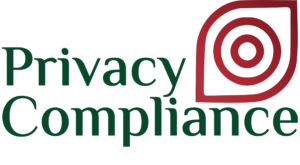[GDPR] the WP29 & EDPB?
The Article 29 Working Party (WP29) is the predecessor to the European Data Protection Board (EDPB), which was established under the General Data Protection Regulation (GDPR). WP29 was an advisory body composed of representatives from the national data protection authorities of all EU member states, as well as the European Data Protection Supervisor. Its primary role was to provide guidance and recommendations on the interpretation and application of the EU Data Protection Directive and other data protection laws.
One of the main differences between WP29 and EDPB is the legal basis for their establishment. WP29 was established under the EU Data Protection Directive, which was repealed and replaced by the GDPR in May 2018. EDPB, on the other hand, was established under the GDPR and is responsible for ensuring consistent application of the regulation throughout the EU.
Another key difference between WP29 and EDPB is the scope of their responsibilities. While WP29 was primarily focused on providing guidance and recommendations on the interpretation and application of the EU Data Protection Directive, EDPB has a broader mandate under the GDPR. In addition to providing guidance and recommendations, EDPB is responsible for promoting cooperation and consistency among national data protection authorities, developing and maintaining a list of processing activities that require a data protection impact assessment (DPIA), reviewing and issuing opinions on draft codes of conduct, certification mechanisms, and other guidelines related to data protection, and monitoring the implementation of the GDPR.
Overall, while WP29 and EDPB share some similarities in terms of their composition and focus on data protection, EDPB has a broader mandate and a stronger legal basis for its establishment. As the primary body responsible for ensuring consistent application of the GDPR throughout the EU, EDPB plays a critical role in protecting individuals’ privacy rights and promoting responsible data handling practices across the EU.

𝗜𝗻𝘁𝗿𝗼𝗱𝘂𝗰𝗶𝗻𝗴 𝘁𝗵𝗲 “𝗕𝗶𝗼𝗺𝗲𝘁𝗿𝗶𝗰 𝗗𝗮𝘁𝗮 𝗶𝗻 𝗩𝗶𝗲𝘁𝗻𝗮𝗺” 𝗛𝗮𝗻𝗱𝗯𝗼𝗼𝗸 𝗯𝘆 𝗣𝗥𝗜𝗩𝗔𝗖𝗬𝗖𝗢𝗠𝗣𝗟𝗜𝗔𝗡𝗖𝗘
🚀 𝗜𝗻𝘁𝗿𝗼𝗱𝘂𝗰𝗶𝗻𝗴 𝘁𝗵𝗲 “𝗕𝗶𝗼𝗺𝗲𝘁𝗿𝗶𝗰 𝗗𝗮𝘁𝗮 𝗶𝗻 𝗩𝗶𝗲𝘁𝗻𝗮𝗺” 𝗛𝗮𝗻𝗱𝗯𝗼𝗼𝗸 𝗯𝘆 𝗣𝗥𝗜𝗩𝗔𝗖𝗬𝗖𝗢𝗠𝗣𝗟𝗜𝗔𝗡𝗖𝗘 Biometric data is rapidly becoming the backbone of identity verification, authentication, and monitoring systems – and is now classified as one of the most sensitive categories of personal data under Vietnam’s Personal Data Protection Law 2025. To help organizations, businesses, and privacy professionals navigate this […]
Learn more

VIETNAM’S LEGAL FRAMEWORK FOR BACKGROUND CHECKS
𝗕𝗔𝗖𝗞𝗚𝗥𝗢𝗨𝗡𝗗 𝗩𝗘𝗥𝗜𝗙𝗜𝗖𝗔𝗧𝗜𝗢𝗡 (𝗕𝗚𝗩) 𝗜𝗡 𝗩𝗜𝗘𝗧𝗡𝗔𝗠: 𝗪𝗛𝗔𝗧 𝗘𝗠𝗣𝗟𝗢𝗬𝗘𝗥𝗦 𝗡𝗘𝗘𝗗 𝗧𝗢 𝗞𝗡𝗢𝗪 As Vietnam moves toward full enforcement of the Personal Data Protection Law in 2026, background verification (BGV) practices are coming under closer legal and ethical scrutiny.Our latest article breaks down what checks employers can legitimately perform, when they are required by law, and how […]
Learn more

HIPAA PRIVACY RULE: MECHANISMS FOR PERSONAL HEALTH INFORMATION PROTECTION
HIPAA PRIVACY RULE: MECHANISMS FOR PERSONAL HEALTH INFORMATION PROTECTION The Privacy Rule is one of the core rules of HIPAA which governs the conditions, timing, and circumstances under which protected health information (PHI) may be used or disclosed. It establishes standards that grant patients rights over their health data, enhancing their control over its use […]
Learn more